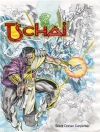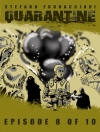Brutal y sobrecogedora, una novela con la dictadura argentina como telón de fondo.
Tres historias que forman parte de una misma historia. En 1941, en una ciudad de provincias argentina, una niña confiesa a un sacerdote los primeros y difusos impulsos sexuales que nota en su cuerpo, relacionados con la atracción que siente por un joven apellidado Videla que pasa cada día bajo su ventana. En 1977 un grupo de jóvenes revolucionarios prepara un atentado en un aeródromo para liquidar a un Videla que ya no es joven y es conocido por todos. Y, por último, una anciana –la niña de la primera historia– juega una partida de cartas con su nieto, que ha ido a visitarla a la residencia donde pasa sus días, y entre jugada y jugada le cuenta lo que le sucedió a su hijo, el padre del chico, en lo que resulta una nueva confesión. Tres historias y tres tiempos que se entretejen para forjar una única historia. Tres historias que hablan de dolor, culpa y confesiones.Una novela sobrecogedora y deslumbrante, construida con una brillantísima arquitectura que le permite al autor penetrar hasta la médula de las historias –de la historia– que nos relata.
Brutal and overwhelming, Confession wrestles with the legacy of Argentina’s past and the passions of one young girl.
There are mysteries in the world of man, just as there are in the Kingdom of God, and that they too, albeit quite differently, are unfathomable.
When Mirta López looks out the dining room window, she sees a slim, self-possessed older boy on his way back from school. It’s 1941 in provincial Argentina, and the sight of the Videla’s eldest son has awakened in her the first uncertain, unnerving vibrations of desire. Naturally, she confesses. But she cannot stop herself. Thirty years later, Videla is a general, leading the ruling military junta, and a cell of young revolutionaries plot an ingenious attack on him, and the regime. Writing from the present into the past, Martín Kohan maps the contours of Argentina’s 20th Century, but finds his center in one woman—devout, headstrong, lit up with ideas of right and wrong—not the grand historical figures of her lifetime’s omnipresent, brutalizing history. “There is an art to keeping lives constant, not allowing them to be altered by facts that are merely external.” And there is great beauty in Confession , its decades and landscapes, and the legacy of love and guilt playing out in one family and against the background of dictatorship’s traumas.
Про автора
Martín Kohan enseña Teoría Literaria en la Universidad de Buenos Aires. Ha publicado varios libros de ensayos, cuentos y siete novelas hasta el momento. Su obra es publicada por editoriales de enorme prestigio en Europa como Anagrama (España), Einaudi (Italia), Seuil (Francia) y Suhrkamp (Alemania). El XXV Premio Herralde de Novela otorgado a Ciencias morales , constituyó su definitiva consagración como uno de los autores más importantes del actual panorama literario internacional.Martín Kohan was born in Buenos Aires in 1967. He teaches Literary Theory at the University of Buenos Aires. To date, he has published several books of essays and short stories, and seven novels. His work has appeared with publishers of great prestige in Europe such as Anagrama (Spain), Einaudi (Italy), Seuil (France) and Suhrkamp (Germany). The 25th Premio Herralde de Novela awarded to Ciencias Morales (Moral Sciences ) consecrated him as one of the most important authors in today’s international literary panorama.












